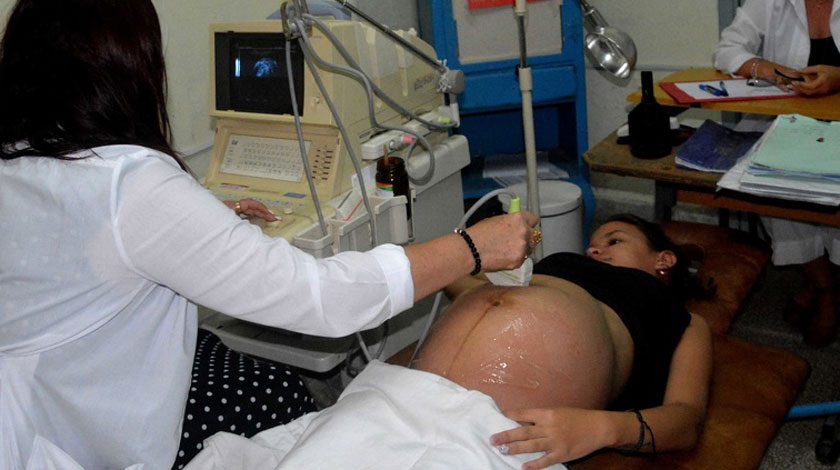New protocols in the Mother and Child Care Program in Holguín
- Written by Eileen Molina / ACN
- Published in Health
- Hits: 1284

The Mother and Child Care Program (PAMI) in the province of Holguín applies new protocols for the monitoring of pregnant women with the aim of protecting this vulnerable sector of the population and reducing morbidity rates.
These projects have among their objectives to reduce the complications derived from chronic or genetic diseases that cause prematurity and low birth weight with a negative impact on the quality of life of pregnant women.
Yamilín Castillo, head of the PAMI in the territory, told the ACN that pregnant women are reassessed between 28 and 34 weeks through a comprehensive ultrasound performed by genetic specialists to detect possible malformations in the fetus, in addition to new Doppler flowmetry and servicometry studies to take timely action on risk factors.
She also highlighted the incorporation of the leukogram in puerperal women before discharge from the clinic and the increase in the professional training of the medical staff in the provincial maternity hospital, a national reference for its remarkable results in patient management.
At the same time, actions are carried out for the improvement of the family doctor and nurse protocols, essential in the follow-up and timely detection of possible complications, she pointed out.
The PAMI emerged in Cuba in the 60s of the 20th century and its objectives are to provide specialized medical attention and genetic follow-up to pregnant women through more than 16 consultations and some 30 diagnostic tests, carried out in hospitals and polyclinics during the nine months of gestation, reports the official website of the MINSAP.
